Blowouts are a common occurrence with RV tires. This happens when the inflation pressure becomes too low, and the tire loses air.
The downside of blowouts is that when they occur, they can lead to punctures and other damage to the tires. There’s a reason tire pressure is so significant with an RV: tires can blow out at the slightest pressure difference. And in the case of motorhome tires, the vehicle’s weight may cause drastic pressure changes that can cause blowouts.
If you’re planning to travel with your RV, keeping tire pressure under control is essential for a safe and enjoyable journey. While motor home tire pressure varies from vehicle to vehicle and tire to tire, most manufacturers recommend a set range of pressure. This guide will help you understand how to safely and effectively maintain tire pressure on your RV and why it’s essential.

What Causes RV Tire Blowouts?
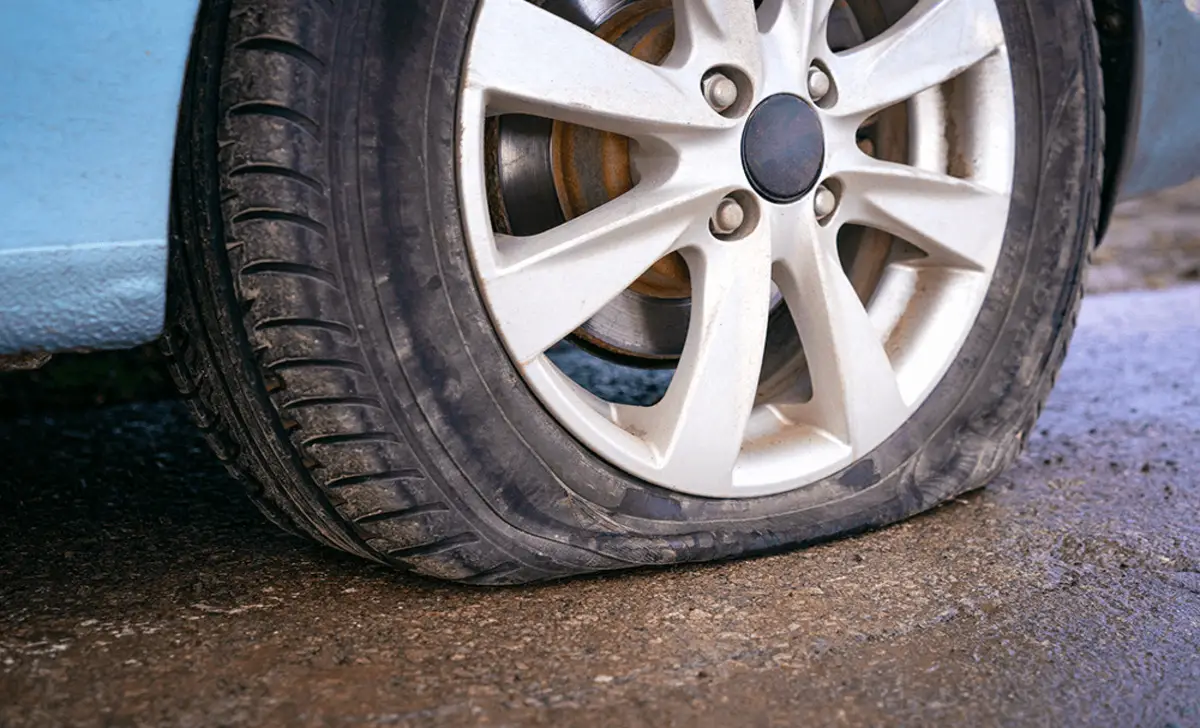
Tire blowouts are a common and severe problem for RVs. Poorly inflated tires are the leading cause of tire blowouts, and tires that are not adequately balanced can also be a factor. Unbalanced rv tires can cause tire blowouts due to excessive wear or damage, causing the tire to lose air too quickly and become unstable. Another contributing factor is the inadequate rotational speed.
Not rotating the tires enough can lead to blowouts, as the tread will wear unevenly and can catch on objects such as rocks or cracks in the road. Driving on rough roads can also cause tire blowouts by causing excessive wear and damage to the tire’s tread. Rolling and bouncing over ruts in the road can cause uneven tire tread wear, leading to tire failure.
Finally, driving in extreme weather conditions can also cause tire blowouts by causing excessive heat, cold, heavy rain, or snow. To avoid these problems, ensure your RV tires are properly inflated and balanced, and don’t drive them on rough roads or in harsh weather conditions unless you need to.
10 Tips To Prevent RV Tire Blowouts
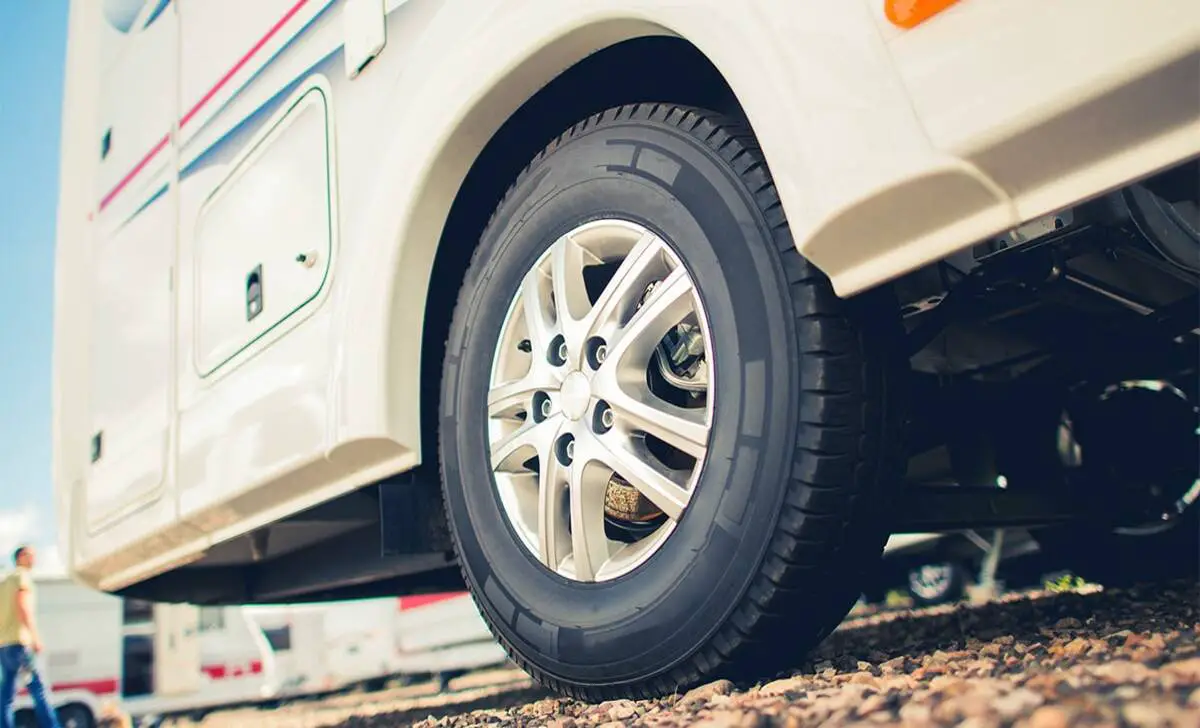
Rv tire blowouts are a common occurrence for RV owners. They can happen for several reasons, including driving conditions, tires, and style. Rv tire blowouts can cause various issues, from decreased driving stability to the risk of injury or even loss of control. Additionally, driving safely and slowly when traveling in an RV is essential, as certain road conditions could lead to an accident or sudden loss of control.
Driving more than posted speed limits, excessive speed changes, or driving under the influence of drugs or alcohol can increase the chance of a tire failure. Here are 10 Tips to prevent RV tire blowouts:
1.Avoid RV Tire Blowouts By Replacing Tires Regularly

RV tires are specially designed for use on RVs, and they require more care than regular tires. These tires are specifically engineered to handle the unique challenges of RV travel. However, to ensure a safe and comfortable journey, it’s essential to regularly replace the tires in your RV.
This will help prevent blowouts and improve tire wear over time. Keep a tire pressure gauge handy when traveling with your RV to check tire pressure regularly and avoid blowouts. It’s also a good idea to ensure each tire is inflated correctly before hitting the road.
Overloading your RV can lead to a tire blowout and be dangerous for you and the surrounding environment. So, make sure to use the appropriate weight distribution for your vehicle. And follow the other tips listed here to ensure a long-lasting vacation with your Rv tires.
2.Keep Up With Tire Maintenance To Prevent RV Tire Blowouts
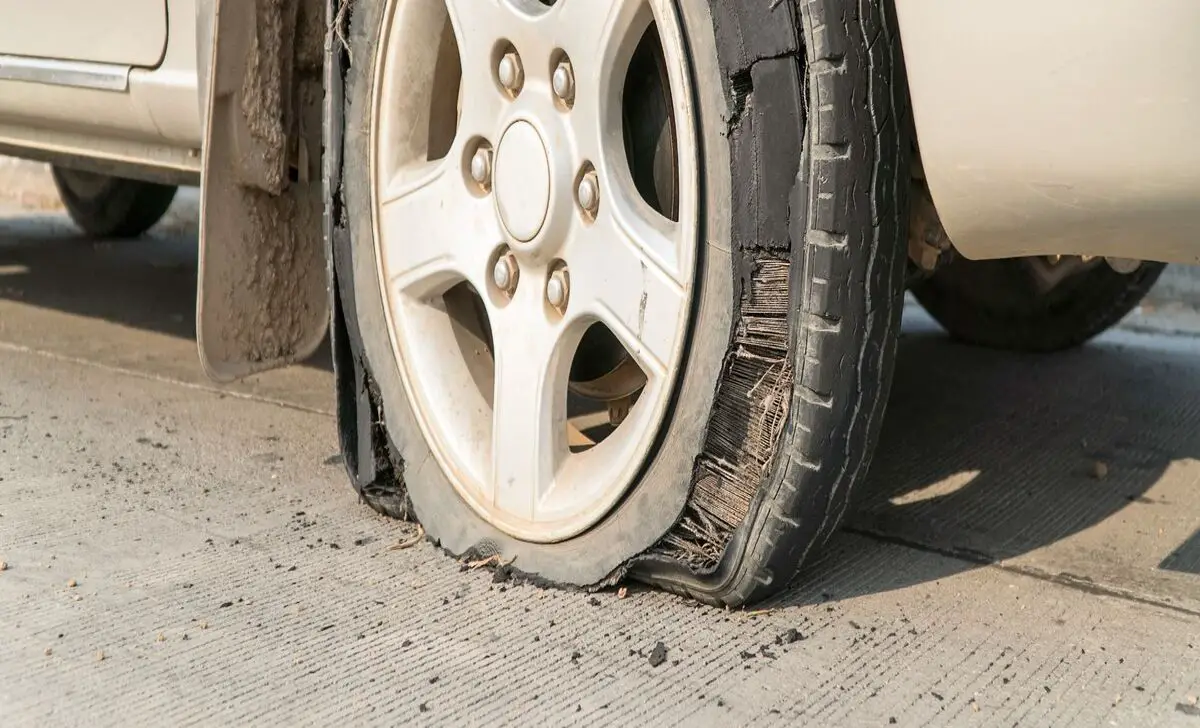
Tire blowouts can be a severe problem on an RV. A tire blowout can lead to several issues, including tire damage and safety risks. If you want to prevent tire blowouts in your RV, there are several ways you can do so. One method is regularly maintaining the tires of your vehicle. By keeping up with tire maintenance, you can ensure that your tires are always in good working condition and have enough pressure to handle the vehicle’s weight.
Additionally, using the correct size tires for your vehicle can help reduce tire wear and tear. Finally, using the tire type and pressure recommended by your vehicle manufacturer can ensure that the tire is used appropriately and efficiently. By following these tips and keeping up with tire maintenance, you can ensure that your RV is safe and free from tire blowout problems.
3.Avoid Excessive Heat To Prevent RV Tire Blowouts

Overloading your RV tire can lead to a blowout. Using the right tire for the right job and vehicle weight is essential to avoid a blowout. This means that you need the tire that best suits the weight of your vehicle and the driving conditions you will be in. Additionally, tire pressure must remain at the recommended level for a safe and comfortable ride.
When choosing a tire for your vehicle, consider its speed rating, tread pattern, load rating, speed rating, speed index, and diameter. Consult a tire professional if you’re unsure about what tire to choose or how to inflate it properly. In addition to high tire pressure, other factors contributing to blowouts are excessive heat and driving on poorly maintained roads or under-inflated tires.
4.Stay On RV-Friendly Routes Clear Of Debris
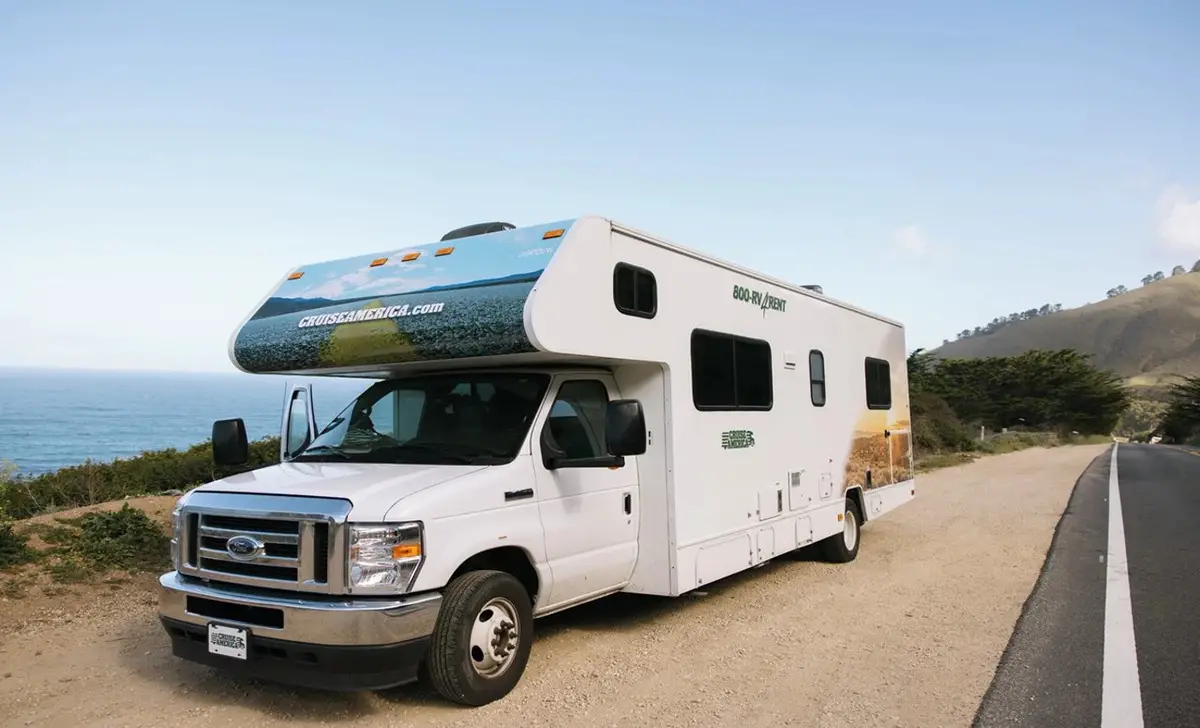
RV tires are designed to travel on smooth, level surfaces only. If you encounter an obstacle on your route, your RV tire won’t be able to handle the stress and blow out. This can result in a blowout of your tire. Other factors that can blow out tires include debris in the road or hitting a speed bump.
These bumps can cause excessive pressure inside the tire and lead to blowouts. To avoid a blowout, it’s best to travel on routes with smooth, level surfaces and avoid unpaved roads or paths where there’s a high likelihood of encountering debris.
5.Too Much Weight Will Blowout Rv Tires
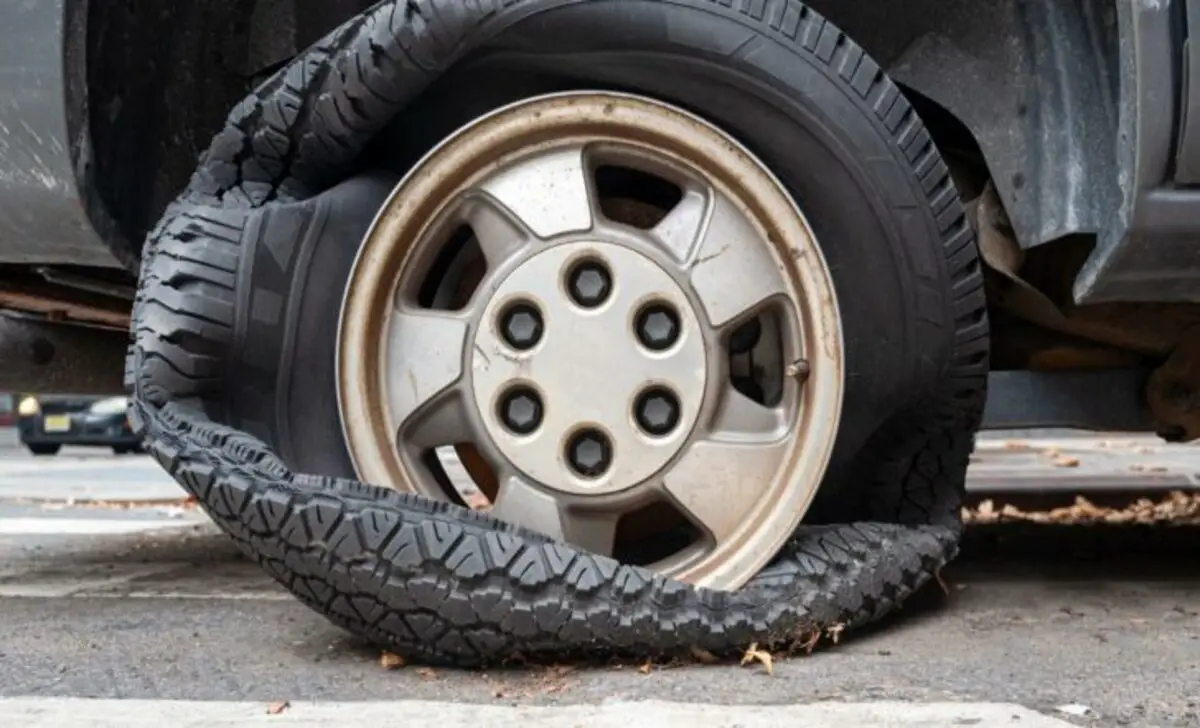
If you overload your RV with cargo, you will likely experience tire blowouts. Exceeding the weight limit for RV tires can cause them to fail. Too much air pressure in the tires can also cause weight. When overloading an RV, it’s essential to check the pressure in the tires regularly and reduce the weight of your cargo.
Besides, use long rubber straps to secure heavy items to the RV chassis or wheel wells. Always wear a safety belt to prevent tire blowout while driving an RV. These tips will help keep your vehicle in good working condition and avoid unexpected tire blowout costs.
6.Tire Pressure Monitors Help You Avoid Rv Tire Blowouts

A tire pressure monitor is a device that alerts you when the tire pressure in your RV falls below a certain threshold. The tire pressure monitors are typically mounted outside the tires and can be calibrated to your RV’s specific inflation pressure. This allows the monitors to automatically alert you when the tire pressure in your RV begins to decrease.
It is important to remember that tire pressure monitors only work if they are correctly installed and calibrated, so you must take time to ensure they are working correctly before starting your Rv adventure. If you want to avoid blowouts and identify the cause of a tire blowout, then a tire pressure monitor is an indispensable tool for your vehicle’s safety and maintenance.
7.Use The Correct Tire Size To Avoid RV Tire Blowouts
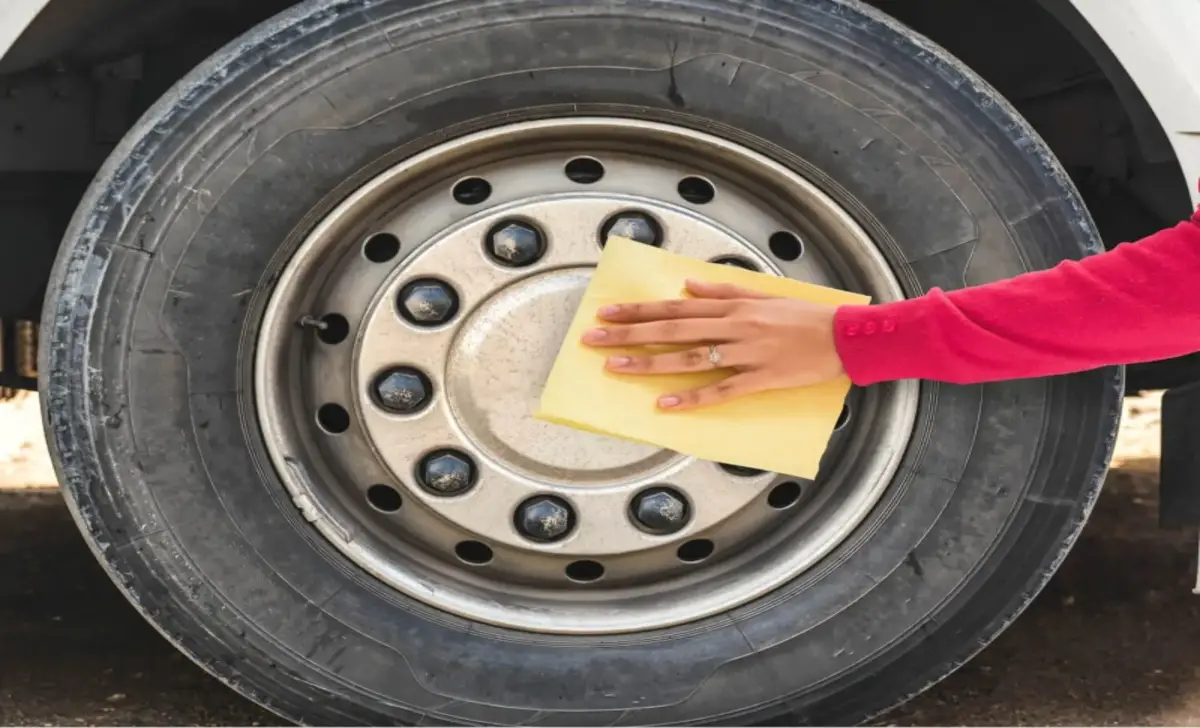
RV tires are larger and heavier than traditional car tires, which can cause them to overheat and blow out. When the tire quickly heats up and becomes unstable, it will have lost tire pressure. If this happens, it can lead to a tire blowout, potentially causing severe damage to your vehicle. Use the correct tire size for your RV to avoid RV blowout.
Make sure your RV has the proper inflation pressure and alignment. You also need to regularly check your RV’s brakes and tires for wear and tear. Besides, please keep it clean and free of debris to avoid problems with heat buildup. For maximum safety, you should periodically check each tire’s tire pressure.
8.Old Tires Can Cause Rv Tire Blowouts
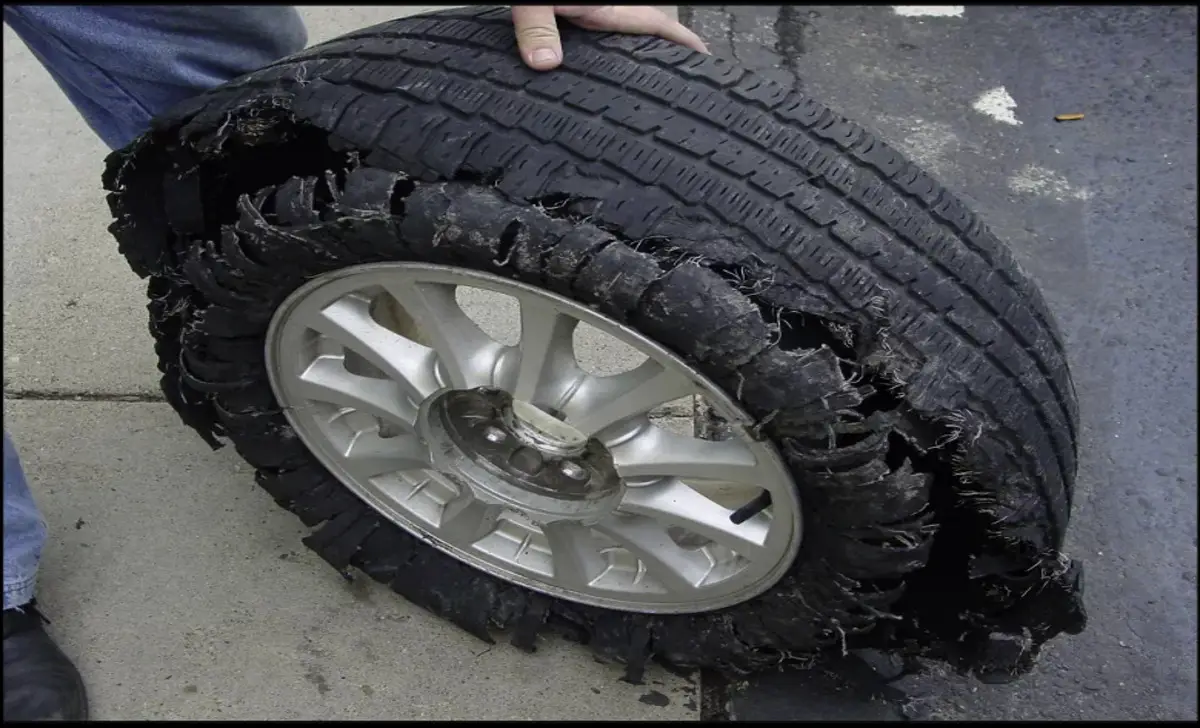
Old tires can cause blowouts in rv tires by creating air bubbles that can damage the tire. If a tire is cold, moisture can enter the tire through the cracks in the rubber. This creates air bubbles that can lead to blowout or tire failure.
Worn-out or bald tires are also a potential source of blowout risk. The best way to prevent rv tire blowout is to check your tire pressure and replace worn tires regularly. Additionally, it’s essential to maintain your RV’s suspension system to ensure long-term tire performance.
9.Avoid Excessive Heat
RV tires are known to blow out under excessive heat. When the tire reaches a high temperature, air pressure can suddenly release, causing the tire to blow out. Keeping the RV cool and avoiding long drives is essential to prevent tire blowouts. Also, check the air pressure regularly and replace the RV tires when necessary.
In addition to these steps, you can keep the RV clean and free of debris to prevent buildup. Finally, never drive with damaged or over-inflated tires. By taking these steps, you can protect your investment and enjoy your travel experience safely.
10.Know Your Route Before You Go
Before hitting the road, familiarize yourself with your route and make sure you know the conditions. Drive at a moderate speed and avoid sudden maneuvers. Avoid driving in the rain or during cold weather. If you experience a tire blowout, stop as soon as possible and replace the tire as quickly as possible. Keep a spare tire on hand to ensure you can continue your trip safely.
Conclusion
Blowouts are the most common and frustrating occurrence in the life of an RV owner. They can occur due to several reasons, such as a puncture, a flat tire, or driving over a rock. It can take several attempts to repair the blowout, but it should not be taken lightly.
Here are some tips that will help you deal with a blown-out RV tire. Now that you’re aware of the causes of tire blowouts and the measures you can take to prevent them, we hope you enjoy a tire-free travel experience.
This article also provides tips for averting RV tire blowouts and tread depth that could help you avoid tire blowouts. We’ve also mentioned how to monitor your tire pressure and where to find tire pressure monitors (TPMSs). While there is no way to eliminate the possibility of blowouts, following these tips could help reduce the chances of a blowout.
Frequently Asked Questions
1.What Causes An RV Tire Blowout?
Ans: Many factors can contribute to RV tire blowouts, including overloading the tires with too much weight, not properly inflating the tires, or driving on rough or slippery surfaces.
To prevent RV tire blowouts, it is essential to follow these tips:
- Load the tires evenly and proportionately.
- Inflate the tires to the recommended pressure level.
- Drive slowly and cautiously on rough or slippery roads.
2.Should I Put Something Under My RV Tires?
Ans: There is no definitive answer to this question, as everyone’s rv needs vary. Some people advocate putting something under RV tires to prevent blowouts. In contrast, others argue that this is unnecessary and that rv tires are designed to withstand a certain amount of pressure.
Ultimately, the best way to prevent tire blowouts is to use common sense, observe precautions such as ensuring your tires are correctly inflated and never over-inflated, and stay alert when driving your RV.
3.How Do I Stop My Tires From Blowing Out?
Ans: To prevent your RV tires from blowing out, ensure you are using the correct tire pressure and checking your tire inflation pressure monthly. Additionally, inspect your RV tires for damage and wear regularly. If your RV tires blow out, replace them as soon as possible.
4.Are Tire Blowouts Preventable?
Ans: Tire blowouts can be prevented by following a few simple tips.
- Always check your RV tires for bald or cracked patches.
- Make sure the RV tire pressure is at the correct level.
- Check the RV tires for any damage, including cuts and cracks.
- Properly inflate RV tires in cold weather to help them grip the road better.
5.Are RV Tires Prone To Blowouts?
Ans: Yes, RV tires are prone to blowouts. A blowout on an RV tire can cause severe damage to the vehicle. To prevent a blowout, pay attention to your tire pressure, rotate your tires regularly, and maintain your RV adequately.
